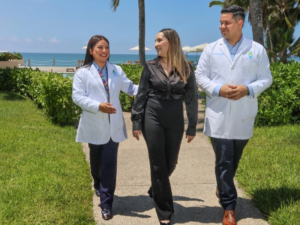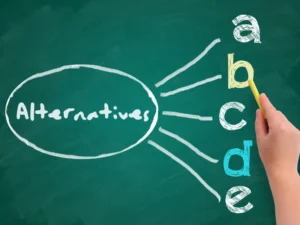Have you ever contemplated the profound impact of guilt during rehabilitation? What if there were strategies to effectively confront and conquer this emotional hurdle, leading to a more successful recovery journey?
Facing guilt during rehabilitation
Facing guilt during rehabilitation can be a significant challenge for many people. Often, those seeking to recover from addictions or overcome mental health issues may experience feelings of guilt that hinder their progress.
At Oceánica, located in Mazatlan, Mexico, our trained professionals and experts in different disciplines provide personalized attention and comprehensive treatments that fit each patient’s needs. Below, we mention the components.
· The importance of a positive mindset in rehabilitation
A positive attitude is a critical factor for success in any rehabilitation process. Through positive thinking, we can approach challenges with an optimistic outlook, allowing us to maintain the motivation and focus needed to overcome obstacles. When we face guilt, it is essential to have a positive mindset to prevent this emotion from paralyzing us and preventing us from moving forward.
· Identify the causes of guilt
The first step in confronting guilt is to identify its underlying causes. Why do we feel guilty? It can be helpful to reflect on the past actions that generate this feeling and analyze whether those faults are rational or based on distorted perceptions. Sometimes, our unrealistic expectations of ourselves can fuel guilt, so it’s essential to be compassionate to ourselves.
· Accept emotions and practice self-compassion
Once we identify the causes of our guilt, allowing ourselves to feel and accept those emotions is essential. Denying or suppressing guilt will only intensify it in the long run. Instead, let’s practice self-compassion and remind ourselves that we are all human and make mistakes. Learning to forgive ourselves is a crucial step toward a positive mindset.
· Learning from past experiences
Past experiences, even those that generate guilt, can provide valuable life lessons. Instead of clinging to shame, let’s try to learn from our mistakes and transform them into opportunities to grow and improve. Let’s recognize that we constantly evolve and that our mistakes do not define our worth.
· Set realistic goals
A positive mindset is strengthened when we set realistic and achievable goals in our rehabilitation process. By setting attainable goals, we avoid putting excessive pressure on ourselves, which could make us feel more guilty if we don’t meet unrealistic expectations. Every small step forward is a significant achievement and deserves to be celebrated.
· Seek support in the community
Support from others can positively impact our recovery and coping with guilt. Let’s look for a caring community that shares our experiences and challenges. Participating in support groups or having supportive friends and family can encourage overcoming guilt and progressing toward a successful recovery.
· Practice gratitude and self-recognition
Cultivating gratitude and self-recognition are potent practices to strengthen our positive mindset. Let’s be grateful for every step forward we take in our rehabilitation process and recognize our efforts and achievements, no matter how small they may seem. Celebrating our victories, no matter how small, helps us maintain a positive attitude and motivates us to keep going.
· Develop healthy coping techniques
Facing guilt during rehabilitation in healthy ways involves developing effective coping techniques. Let’s learn to express our emotions constructively through communication with others or artistic expression. Practicing meditation, regular exercise, and caring for our physical and emotional well-being are valuable tools for positively dealing with guilt.
· Focus on the present and the future
While learning from past experiences is essential, focusing too much on them can keep us trapped in a cycle of guilt and remorse. We must focus on the present and future to advance our rehabilitation process. Let’s visualize the life we want to build for ourselves and work on concrete actions that bring us closer to that vision.
Facing guilt during rehabilitation is a common challenge. Still, we can overcome this obstacle with a positive mindset and a constructive approach and move toward a fuller, healthier life. Identifying the causes of guilt, practicing self-compassion, learning from past experiences, and setting realistic goals are critical steps to breaking free from guilt and embracing personal growth.
Find calm and renewal in Mazatlan, Mexico. At Oceánica, we offer you one of the most serene and peaceful environments for rehabilitation. If you or someone you know is struggling, please get in touch with us. Our rehabilitation center stands out as one of the most prestigious in the country, where you can start a new path towards health and well-being.
We are waiting for you with open arms so that you can discover a complete and harmonious life in Oceania!
If you need help, contact us by clicking here or calling +52 55 8854 7141. We will gladly assist you.
Sources:











